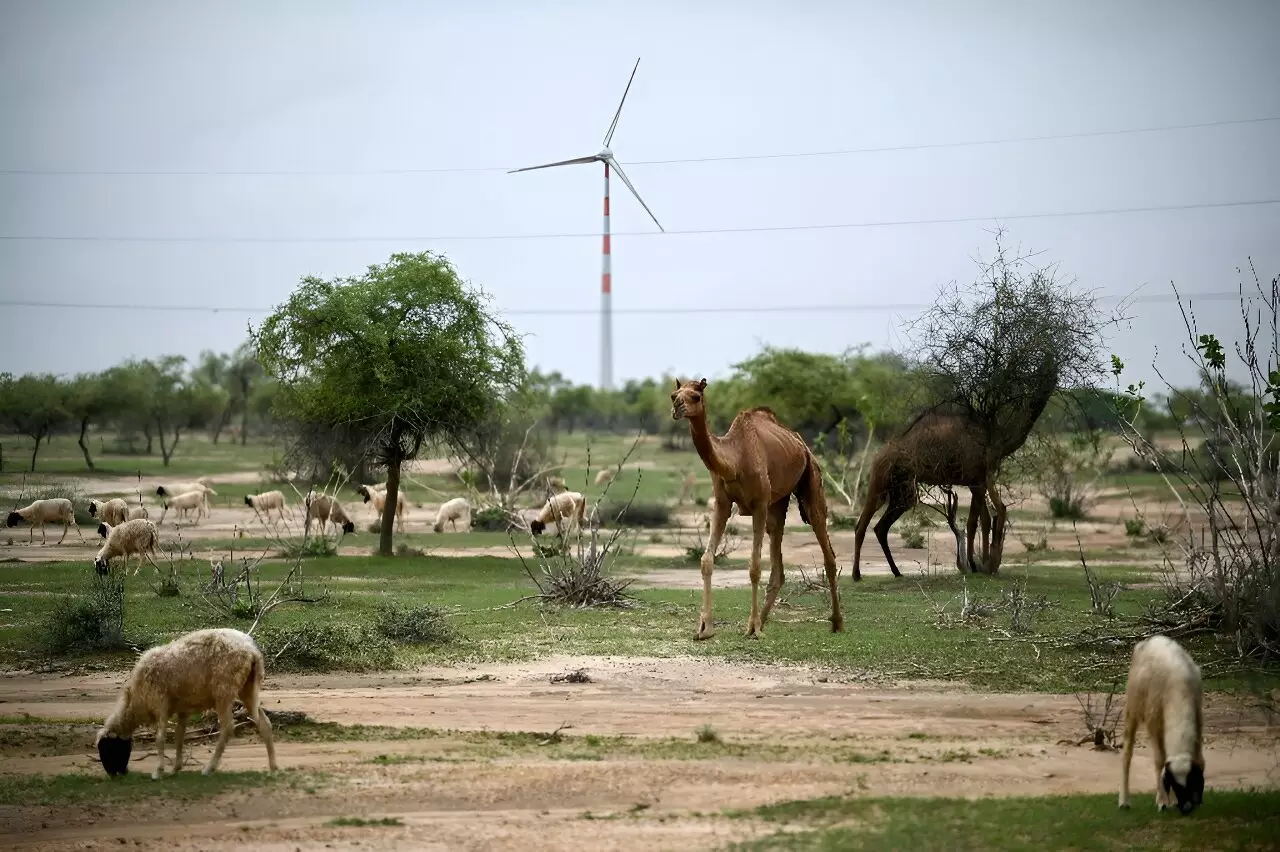The installation of wind turbines in India’s Thar desert has raised significant concerns among the local communities, especially those heavily reliant on agriculture and livestock. Livestock herders like Nena Ram have expressed frustration over the disruption caused by the giant turbines to their age-old farming systems. Grazing lands have been sacrificed for the construction of wind farms, leading to a reduction in grasslands and impacting the availability of water sources critical for the livestock-based economy of camels, cattle, and goats. The promises of sustainable development and support from the companies owning the turbines, such as the Adani Group and Suzlon, have not alleviated the hardships faced by these communities.
The environmental impact of wind turbines goes beyond their physical footprint on the landscape. The construction of wind farms in the Thar desert has led to the loss of biodiversity and the endangerment of locally revered species such as the Great Indian Bustard. The installation of high-tension power lines has further exacerbated the situation, with reports of birds colliding with the wires and facing increased mortality rates. Despite efforts to address these issues, such as the Supreme Court’s order to put power lines underground in bird breeding zones, the government’s prioritization of renewable energy targets has hindered these conservation measures.
While India is rapidly expanding its renewable energy capacity to combat the impacts of climate change, the benefits of this transition have not reached all segments of the population. Communities near wind farms, such as those in the Jaisalmer district, continue to face persistent power cuts and inadequate access to electricity. The prioritization of power supply to industrial centers and urban areas has left rural residents like Sumer Singh Bhati struggling with limited access to electricity, particularly during the scorching summer temperatures that can soar up to 50 degrees Celsius. The disparity in energy access highlights the challenges faced by marginalized communities in the transition to renewable energy.
The installation of wind turbines in rural areas has not only disrupted livelihoods but also led to social and economic displacement within communities. Farmers who have lost access to grazing lands and witnessed a decline in milk production are grappling with the long-term consequences of these changes. The encroachment of windmills on community lands has fueled resentment among villagers who feel marginalized in the decision-making process. The promises of corporate responsibility and community support from wind farm owners have not addressed the underlying issues of land rights and equitable development in these regions.
As India accelerates its transition to renewable energy and aims to achieve ambitious targets for non-fossil fuel power capacity, it is crucial to address the challenges faced by communities living near wind turbines. The conflict between environmental conservation, sustainable development, and energy access underscores the complex trade-offs involved in the transition to clean energy. Balancing the needs of local communities, biodiversity conservation, and renewable energy expansion requires a nuanced approach that prioritizes equity, environmental sustainability, and community participation in decision-making processes. As India navigates this critical juncture in its energy transition, it must ensure that the benefits of renewable energy reach all segments of society and mitigate the adverse impacts on marginalized communities and fragile ecosystems.


Leave a Reply